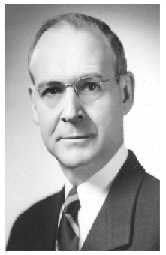Charles Glen King facts for kids
Quick facts for kids
Charles Glen King
|
|
|---|---|

Charles Glen King
|
|
| Born | October 22, 1896 Entiat, Washington, U.S.
|
| Died | January 23, 1988 (aged 91) |
| Education | Washington State University (BS) University of Pittsburgh (MS, PhD) |
| Known for | Nutritional research, discovery of Vitamin C |
| Awards | John Scott Award Nicholas Appert Award (1955) |
| Scientific career | |
| Fields | Biochemist |
| Institutions | University of Pittsburgh, Columbia University |
Charles Glen King (born October 22, 1896 – died January 23, 1988) was an American biochemist. He was a very important scientist who studied nutrition. King is famous for helping to discover and isolate vitamin C. He did this around the same time as another scientist, Albert Szent-Györgyi. Many people believe King should get just as much credit for finding this important vitamin.
Early Life and Learning
Charles Glen King was born in Entiat, Washington. He started college early at Washington State University. This was because his small local school did not have a twelfth grade.
College Years and War Service
His studies were paused by World War I. King served in the military in a machine gun company. After the war, he earned his Bachelor of Science (B.S.) degree in chemistry in 1918.
Advanced Studies
He then went to the University of Pittsburgh. There, he earned his Master of Science (M.S.) degree in 1920. He completed his Doctor of Philosophy (Ph.D.) degree in 1923. From the very beginning of his advanced studies, King was very interested in the new field of vitamins.
Becoming a Professor
King stayed at the University of Pittsburgh as a professor. He taught there until 1942. After that, he became the first scientific director of the Nutrition Foundation, Inc. This organization worked to support scientific research and public health. It helped people in the U.S. and around the world.
Discovering Vitamin C
Charles King's biggest contribution to science was isolating vitamin C. He did this important work between 1931 and 1932. He studied how different substances from lemon juice could prevent scurvy in guinea pigs. Scurvy is a disease caused by a lack of vitamin C.
Working at the Same Time
At the same time, another scientist named Albert Szent-Györgyi was doing similar research. Szent-Györgyi was working at the University of Szeged in Hungary. He was studying a substance called hexuronic acid.
The Big Discovery
King's active substance from lemon juice was almost the same as Szent-Györgyi's hexuronic acid. For a while, scientists thought hexuronic acid was not vitamin C. However, in the spring of 1932, both King and Szent-Györgyi published their findings. King published first, then Szent-Györgyi. They both announced that vitamin C and hexuronic acid were indeed the same compound.
Nobel Prize Controversy
Szent-Györgyi later won a Nobel Prize for his part in this discovery. There is still some debate about whether King should have received equal credit.
Other Important Research
King also helped show how important vitamin B is for our bodies. Throughout his 40-year career, he made many other key discoveries. He researched fats, enzymes, and other vitamins. King wrote over 200 articles about good nutrition and the benefits of vitamins.
Public Service and Later Career
Besides his work with the Nutrition Foundation, King also helped the public in many ways.
Creating New Organizations
He helped create the USDA's Plant, Soil, and Nutrition Laboratory. This lab is located in Ithaca, New York. He also helped start the Food and Nutrition Board. This group dealt with food and nutrition issues for soldiers and regular people. It started during World War II and continued until 1970.
Setting Standards
King also helped create the Food Protection Committee. He contributed to the Recommended Dietary Allowances (RDAs), which are guidelines for how much of each nutrient people need. He also helped form the Protein Advisory Group and the International Union of Nutritional Sciences. He even served on an advisory council for the National Institute of Arthritis and Metabolic Diseases.
Retirement and New Role
King officially retired from the Nutrition Foundation in 1963. But he didn't stop working! He began a second career as an associate director. This was at the Institute of Nutrition Sciences. He also worked as a consultant for the Rockefeller Foundation.
 | William M. Jackson |
 | Juan E. Gilbert |
 | Neil deGrasse Tyson |

